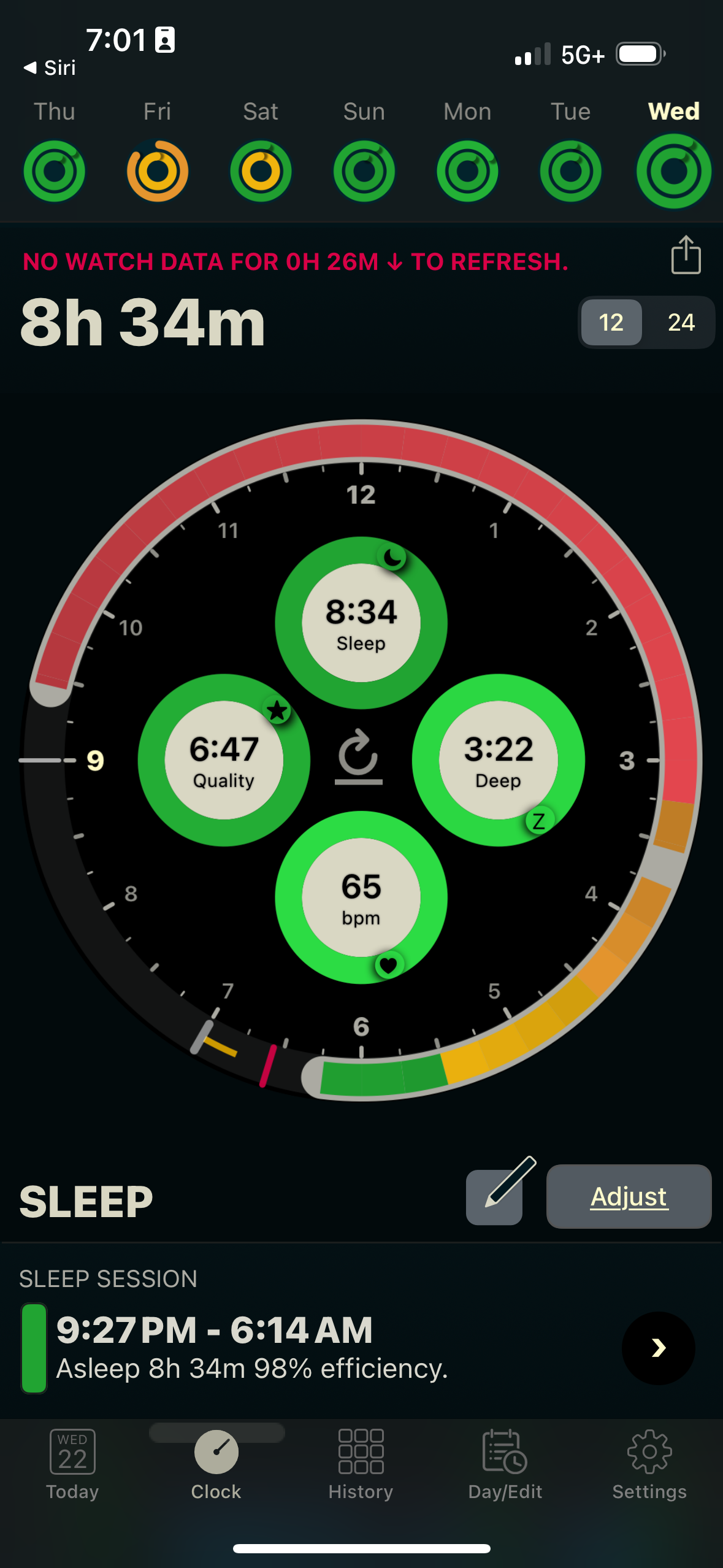It took me years to understand and now I know, sleep and success go together. I set a goal coming in to 2019 to get more sleep. I have spent a great done of time building healthy habits, setting goals and using my time wisely. Sleep moved to the top of my list and I am now feeling the benefits.
A good night’s sleep improves memory, increases your ability to be engaged and enhances performance.
Here are a few things I do:
Involve my family: My work is listening and engaging with CEOs for over 1,000 hours per year. To be effective, I must be rested, focused and fully present with my members. I share this with my family and that helps me plan our time together around a healthy bedtime.
Track my sleep: I began using AutoSleep on my Apple Watch. My first concern was, “When would I charge my watch?”. The answer had dual benefits. As soon as I arrive home, my watch goes on the charger. This allows me to better engage with family without the interruptions. Then I put my watch back on my wrist when I go to bed. AutoSleep tracks my sleep and reports in the morning.
Habits: Working out consistently is directly connected to good sleep. I eliminated as many lights as possible in the bedroom and use a white noise machine. I’ll drink water mid evening, set out clothes and plan meals for the next day. I also use AutoWake to gently wake me in the mornings and then follow a morning routine so I am fresh and ready.
Tools: Last year I purchased a Purple mattress with an adjustable base. This thing is amazing! It was expensive but I have been very happy with the product quality and features.
The other important product I purchased was a Chilipad by Sleep.me. The Chilipad sits on top of the mattress and maintains bed and body temperature. The version I have auto adjusts as you sleep to optimize deep sleep by adjusting temperature. It learns from your sleep patterns adjusts. It has improved my deep sleep by about 30% over the past several months.
Sleep Working Facts
43% of Americans between 13 and 64 say they rarely or never get a good night's sleep on weeknights
60% of Americans say they experience a sleep problem every night or almost every night, such as waking in the night, waking up too early, or feeling un-refreshed when they get up in the morning
61% of Americans say they use a computer at least a few nights a week within an hour of going to bed
Americans drink, on average, three 12-ounce caffeinated beverages on a weekday
74% of workers over 30 who report not getting adequate sleep say that sleepiness affects their work
9% of Americans say they are likely to fall asleep at an inappropriate moment, such as during a meeting or while driving
71% of Americans say they have a television in their bedrooms
11% of those with televisions in the bedroom say they keep the TV on all night
39% of Americans say they have a computer in their bedrooms
40.6 million American workers – 30% of the civilian workforce – sleep less than 6 hours per night ("short sleep duration")
Workers with college degrees or more education were least likely to report short sleep duration
23.2% of American workers suffer from insomnia
People with insomnia did not report higher levels of absenteeism compared to non-sufferers, but reported significantly higher levels of presenteeism (lower productivity while at work)
Workers with insomnia lost an average of 7.8 days of work performance per year due to presenteeism related directly to sleep problems
Generalizing to the total U.S. workforce, insomnia costs American companies $63.2 billion
Sources: National Sleep Foundation, Centers for Disease Control and Prevention, and "Insomnia and the Performance of U.S. Workers," Sleep, 2011
